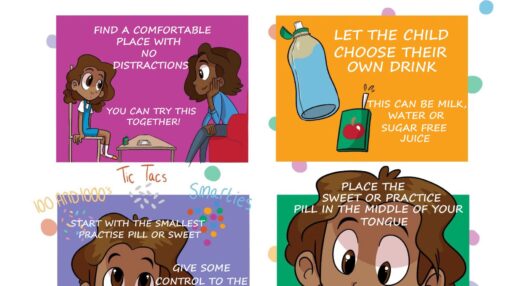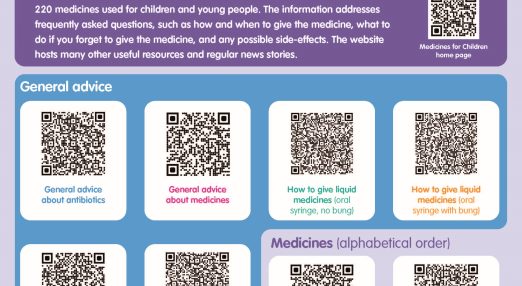What are you looking for today?
Get started
Our vision
Our vision is that any parent or carer, wherever they are, has information on their child’s medicines that they can trust.
What we offer
Our medicines information pages cover many of the medicines that are prescribed or recommended for children by health professionals. They answer frequent questions, such as how and when to give the medicine, what to do if you forget to give the medicine, and any possible side-effects.
You can also read information or watch our short videos about giving different types of medicines, including tablets, capsules, liquid medicine, inhalers, eye drops/ointment and ear drops.
Who are we?
Medicines for Children is a partnership programme of Royal College of Paediatrics and Child Health (RCPCH), Neonatal and Paediatric Pharmacists Group (NPPG) and WellChild. Read more about us and our work.
Latest news
-

Medicines for Children’s 2025 highlights
Over the past year, Medicines for Children has delivered a strong programme of work, with new content and improvements across the site. With 2025 now at an end, we want to highlight a selection of what we achieved over the last 12 months and, above all, thank the healthcare professionals and families who generously shared their time, experience and expertise over the year to help us create new resources for parents and carers.
Read more
-

New information available on cardiac medicines
Families of children with heart conditions will now have access to clearer, more reliable information about their medicines, thanks to a new collaboration between Medicines for Children and the children's pharmacists who make up the Specialist Interest Group (SIG) for Cardiac Medicines, part of the Neonatal and Paediatric Pharmacists Group (NPPG).
Read more
-

Help protect your child from flu this winter – advice from the RCPCH
As the colder months set in, flu season is upon us - and protecting our children has never been more important. Flu can make children very unwell and, in some cases, lead to serious complications. The Royal College of Paediatrics and Child Health (RCPCH) has created a helpful factsheet to guide parents and carers on how to keep children safe this winter.
Read more
-

Medicines for Children to be included on a new medical knowledge platform
Medicines for Children is delighted to be included on the Eolas digital platform, designed for health professionals to manage and share clinical knowledge and resources. Through this partnership, Eolas will signpost healthcare professionals to Medicines for Children, making it simpler for clinicians to share our medicines leaflets with parents and carers.
Read more
-

Helping your child to swallow tablets – new resources from Kidzmed
Being able to swallow tablets is an important life skill that children need to learn. The Kidzmed programme has developed a guide to help children and young people learn to swallow tablets using six simple steps.
Read more
-

QR code posters
Medicines for Children now offers a series of 'QR code posters' to enable quick access to our medicines information. These posters are available to download and print out to display in clinic or hospital settings.
Read more
